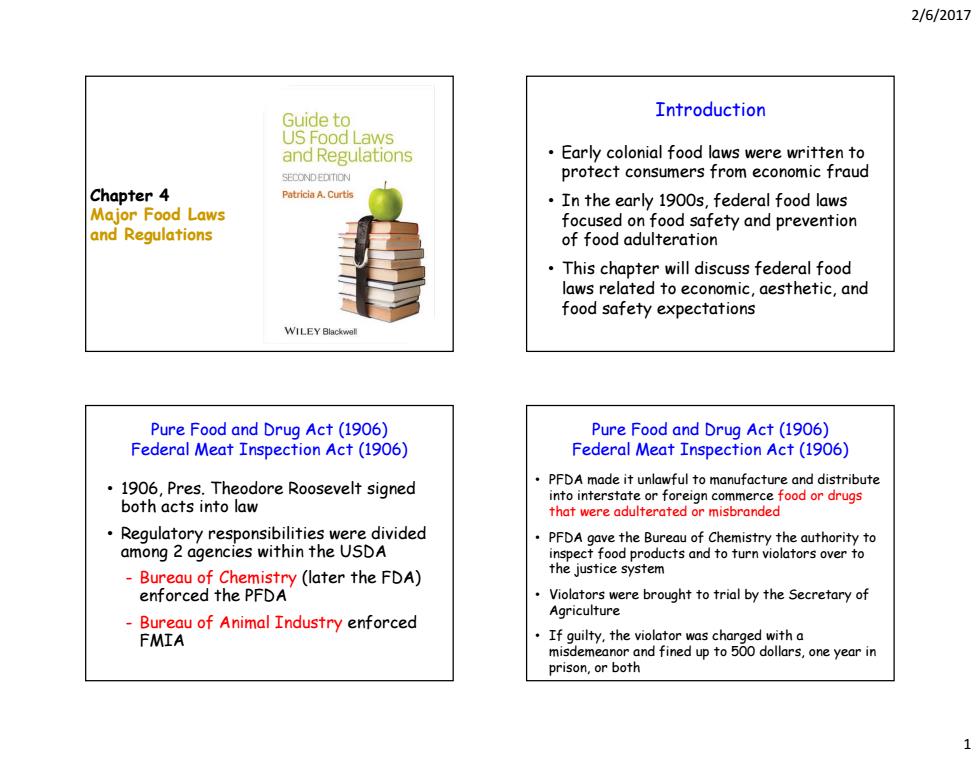正在加载图片...

2/6/2017 Guide to Introduction US Food Laws and Regulations Early colonial food laws were written to SECONDEDITION protect consumers from economic fraud Chapter 4 PatriciaA.Curtis In the early 1900s,federal food laws Major Food Laws focused on food safety and prevention and Regulations of food adulteration This chapter will discuss federal food laws related to economic,aesthetic,and food safety expectations WILEY Blackwel Pure Food and Drug Act(1906) Pure Food and Drug Act(1906) Federal Meat Inspection Act(1906) Federal Meat Inspection Act(1906) 1906,Pres.Theodore Roosevelt signed PFDA made it unlawful to manufacture and distribute both acts into law into interstate or foreign commerce food or drugs that were adulterated or misbranded Regulatory responsibilities were divided PFDA gave the Bureau of Chemistry the authority to among 2 agencies within the USDA inspect food products and to turn violators over to -Bureau of Chemistry(later the FDA) the justice system enforced the PFDA Violators were brought to trial by the Secretary of Agriculture -Bureau of Animal Industry enforced FMIA If guilty,the violator was charged with a misdemeanor and fined up to 500 dollars,one year in prison,or both2/6/2017 1 Chapter 4 Major Food Laws and Regulations Introduction • Early colonial food laws were written to protect consumers from economic fraud • In the early 1900s, federal food laws focused on food safety and prevention of food adulteration • This chapter will discuss federal food laws related to economic, aesthetic, and food safety expectations Pure Food and Drug Act (1906) Federal Meat Inspection Act (1906) • 1906, Pres. Theodore Roosevelt signed both acts into law • Regulatory responsibilities were divided among 2 agencies within the USDA - Bureau of Chemistry (later the FDA) enforced the PFDA - Bureau of Animal Industry enforced FMIA Pure Food and Drug Act (1906) Federal Meat Inspection Act (1906) • PFDA made it unlawful to manufacture and distribute into interstate or foreign commerce food or drugs that were adulterated or misbranded • PFDA gave the Bureau of Chemistry the authority to inspect food products and to turn violators over to the justice system • Violators were brought to trial by the Secretary of Agriculture • If guilty, the violator was charged with a misdemeanor and fined up to 500 dollars, one year in prison, or both